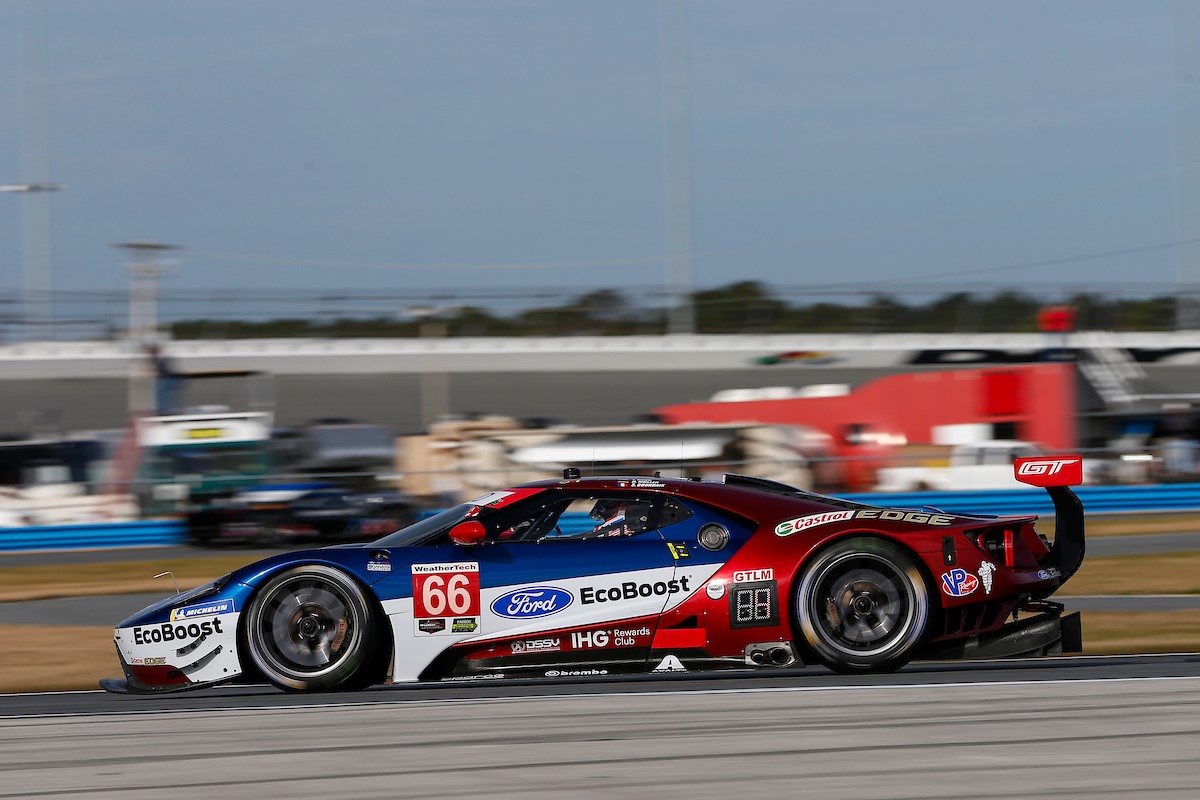Ford’s new engine boss must ditch Ecoboost for electrification
 |
| Will Ford's Ecoboost engines be racing much longer? |
During last months Detroit Auto Show Automotive News' Richard Truett spoke with Dave Filipe, Ford Motor Co.'s vice president of powertrain engineering. Previously Ford changed focused on its line of high-volume EcoBoost engines, which combined direct fuel injection, variable valve timing and turbocharging.
As the EcoBoost era winds down and the electrification era begins, Ford has committed $11 billion to bringing to market 40 electrified vehicles by 2022, including 16 that are 100% battery powered. Filipe, 50, will be in charge of how a huge chunk of that $11 billion is spent.
With so many electrified vehicles on the way, it’s easy to envision a number of hybrid powertrain architectures, such as an electric rear axle, a mild belt-alternator system and a motor between the engine and transmission on rear-wheel-drive vehicles such as Mustang and F series. Can you give a few clues to what is coming?
Filipe: We can’t get into too many details. I think what is great there is that we have incredible supplier partners and we are bringing technology [to market] and we have another technology that we are working on. Knowing how to get scale, and how leverage that has been our recipe all along at Ford. Also, over the last 10 years, we’ve invested in flexible manufacturing, so we can adapt our plants to bring all this new technology. We are really set up for the future because of the investments we’ve made.
As the volume of electrified vehicles increases, when does Ford think about becoming a manufacturer of electric motors?
Filipe: We’re always going to take a look at what makes the most sense for us and what makes the most sense for the customer. That depends on a lot of circumstances.
Would Ford consider a partner for electric motor production?
Filipe: We’ve had great partnerships over the years in powertrain, with GM for transmissions and with PSA (Peugeot) in Europe on diesel engines, where we continue to do that. We’re always open-minded for a win-win solution in discussions with other OEMs. That’s ongoing.
What's your vision for powertrain? You're running a part of the company that deals with a world that is changing quickly.
Filipe: I think it is great. First, we've got the best engineers in the industry. They work so hard and are so passionate. We have a company that continues to look to innovation, with its move into mobility. And electrification is another addition to our powertrain portfolio. We are going to continue to work on new technologies for internal combustion engines, we are delivering a new eight-speed transmission this year. We have delivered full hybrid electric and partial hybrid electric vehicles and now we are going to accelerate that area and introduce battery electric vehicles.
Do investments in traditional internal combustion engines and transmissions tail off as electrified powertrain development accelerates, or do you invest in both?
Filipe: We'll have to keep doing both. The internal combustion engine is not going to fade away overnight. There are some really great new technologies that continue to advance and we can help deliver lower C02 and enhanced performance and drivability. We will continue to mature that as we simplify our architectures going forward.
